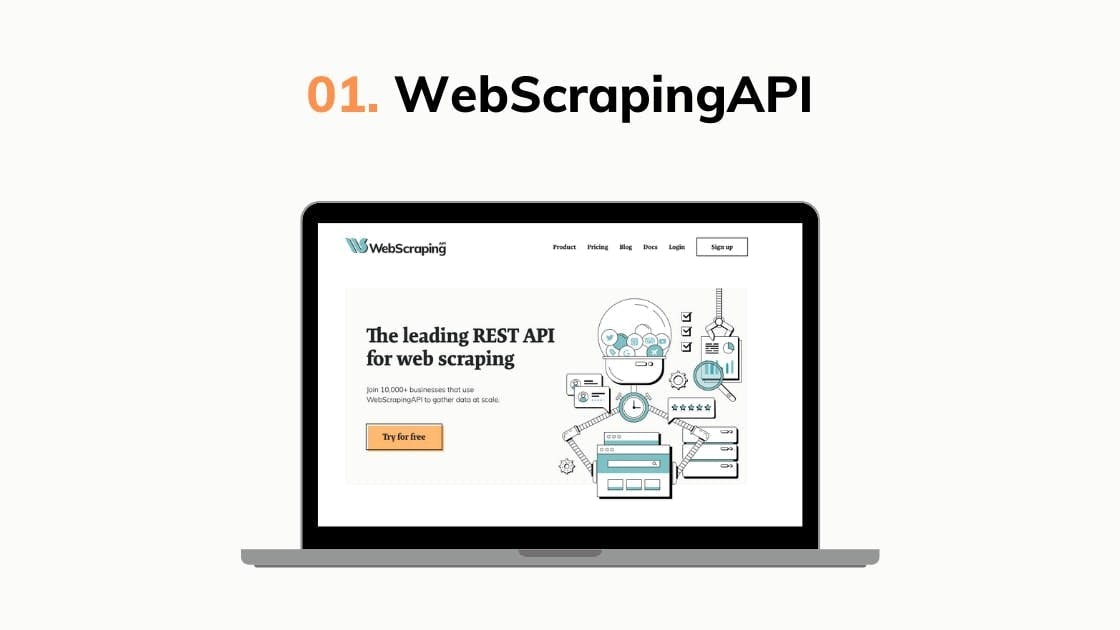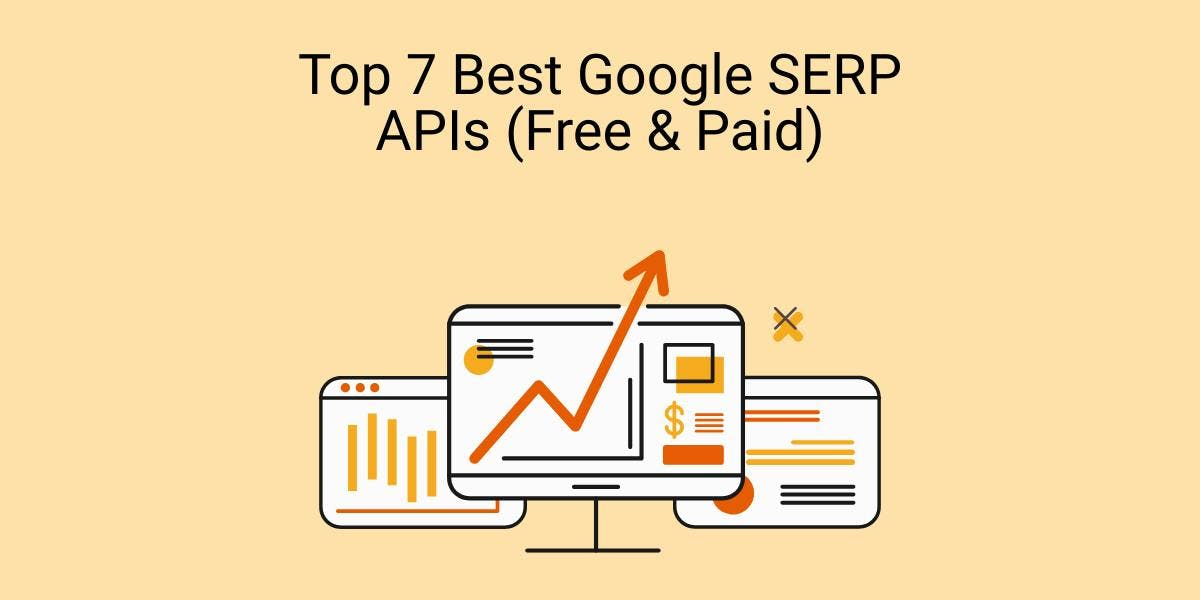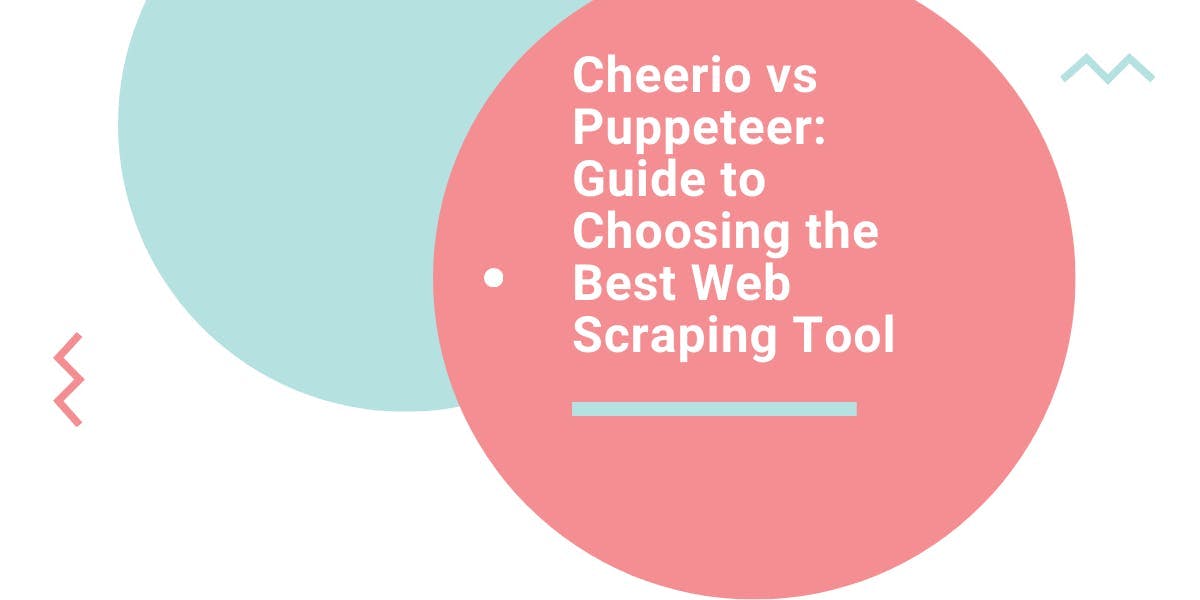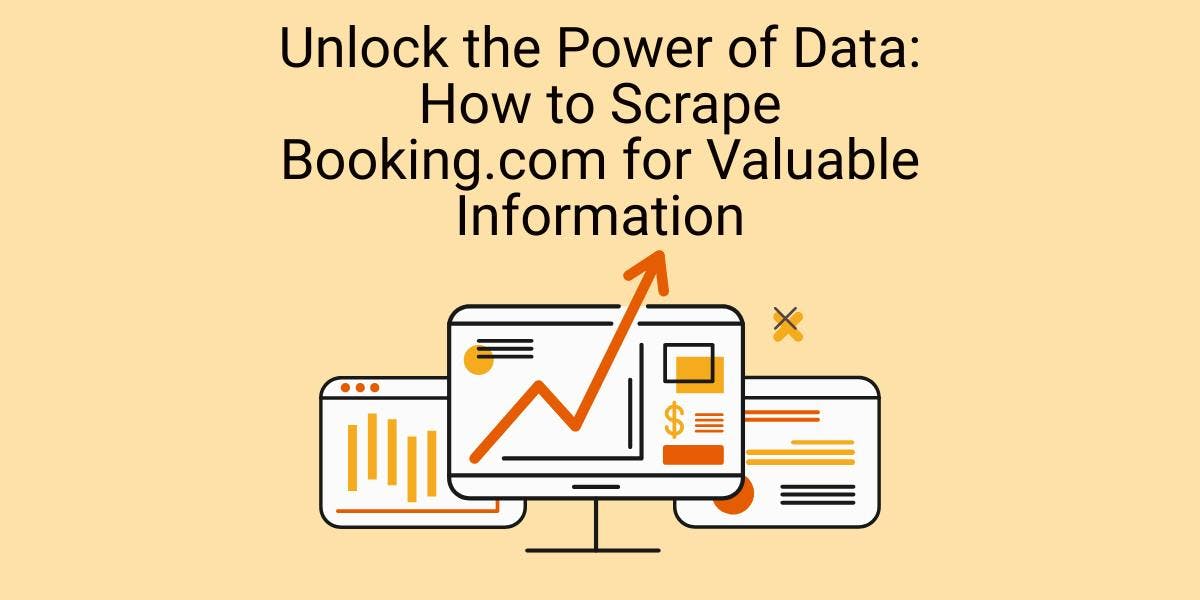The Top 9 Residential Proxy Service Providers
Anda Miuțescu on Jan 16 2023

We personally cannot see a bright future for data extraction without proxies in the picture. Most of the time, you either run the risk of being blocked by the website or scrape at a snail's pace. In short, without multiple IPs, web scrapers lose most of their luster.
You may be wondering why that is. Simple - bot detection tools.
Bot detection software has dramatically advanced, so kudos to them. Captchas, IP blacklists, and request throttling are examples of features that help protect the Internet from malicious bots. Unfortunately, these tools also make it difficult for friendly web scrapers to do their job.
Proxies serve a variety of purposes, but what role do they play in web scraping? Frankly, quite a large one.
Why should you use proxies?
Proxies, at their core, are meant to mask your real IP. Additionally, they're crucial for accessing geo-restricted content since websites think that your requests come from different regions. The best-known example of this are streaming sites. The Office, for example, is available on Netflix only in the UK and Ireland, but if you get a UK proxy, you can watch the show from anywhere.
In web scraping, the proxy pool is one of the most critical components. They're used to make it look like the bot's requests come from different locations and at different times. This is your first line of defense from IP blocks. Additionally, if it fails, your real IP won't be barred from accessing the website.
Web scrapers, and bots in general, can send tons of requests very quickly. That's what makes them so desirable for data gathering. But, this speed is often their downfall. Websites can determine if the requests are coming from a legitimate person or a bot by their behavior. For example, a human won't ever request 25 pages in less than a second.
Add a proxy in the middle, or better yet, a whole proxy pool, and suddenly you have more options. By distributing the requests to a handful of proxies, you're changing what the website sees. Namely, instead of one IP sending 100 requests at once, it's now 10 IPs sending 10 requests each. Ideally, you send each request through a different proxy.
You may think that constantly switching IPs is a huge chore, and you'd be right. That's why proxy service providers came up with proxy rotation - an automated system that changes IPs for you. Rotating proxies is the best way of making sure you're using all your IPs to their full potential.
In fact, widespread scraping is nearly impossible without a large, rotating proxy pool. Pacing yourself matters, and paying attention to how many requests you are allowed to submit in a certain amount of time can make or break your progress. The broader your proxy pool is, the more requests you can send without drawing suspicion. The result is clear - you're much less likely to be blocked.
What are residential proxies?
Essentially, a residential IP address is an address issued by an ISP to a household. When you set up the Internet in a new house or apartment, you receive a residential IP, and every time you view a webpage, you're accessing it thanks to that IP. Use these IPs as proxies, and you're officially cooking with residential proxies.
Since these IPs come from Internet Service Providers, they are much more trustworthy than other kinds of proxies. For example, datacenter proxies are created in bulk on cloud-hosted, virtual servers and enjoy much less trust from websites.
Another big plus for residential IPs is that service providers usually have proxies scattered across the globe. As a result, they can provide you with access to just about any content. Geo-restrictions stop being a problem once you have proxies in dozens of different countries.
So, in essence, residential IPs are the top-quality, highly anonymous proxies that get the job done where other IPs fail. The best solution (both in functionality and ease of use) would be a backconnect proxy that automatically switches between IPs at a fixed interval or after every request.
Top 9 Residential Proxy Providers
Now that you got the gist of how residential proxies work, you're probably wondering which provider you should be going for. I have compiled a clear list of what I personally consider the best available options:
1. WebScrapingAPI

We'll start with WebScrapingAPI for a simple reason: it's a proxy provider and a web scraping service provider at the same time. With over 100 million proxies available, you get the proxy pools you need at any price point - be it the free trial, business, or custom plan. The free trial lasts for 14 days, and in that time, you can try all kinds of different geolocation options. After that, the prices start at $20/month for 200,000 API calls, but you can still use the limited free-forever package.
Each package has a different number of allowed API calls, and you can use those as you please with unlimited bandwidth. Additionally, only successful calls are counted. If a request fails, you can try again without worrying that you'll run out of API calls.
As you might have noticed, WebScrapingAPI can be much more than just your trusted proxy partner. The API can scrape any page and handle everything from CAPTCHAs to Javascript rendering to request throttling. In short, you have an all-in-one web scraping tool.
2. OxyLabs

Oxylabs is a well-known residential proxy provider with over 70 million IP addresses available worldwide. They allow you to filter by region, which will help you find the finest proxies for your project. With a big proxy pool, you'll have access to Residential IP addresses from all over the world, making it easy to get over geo-blocks.
Additionally, concurrent sessions are not limited, so you can simply scale up your web scraping tasks as needed.
The costs, however, may be a dealbreaker for some. The cheapest residential IP package costs $300/month for 20GB of traffic. You also have the option to incorporate machine learning that should raise your success rate. In that case, the price is a bit higher, namely $360/month for the same bandwidth.
3. IPRoyal

As the company’s flagship product, Royal residential proxies from IPRoyal provide the privacy and anonymity you need. They are sourced from genuine residential users and ISPs in over 195 countries worldwide, so you can use them to browse the web as a user from any location you want.
The provider controls a network of over 2 million ethically sourced residential proxies that come with country, city, and state-level targeting. The 100% pay-as-you-go residential proxy service allows you to buy as much traffic as you need with no monthly minimums or long-term contracts.
The pricing is one of the most affordable on the market, starting at only $7 per GB with fantastic bulk discounts that reduce the cost to $2.45 per GB. Despite the low prices, IPRoyal’s proxies have some of the best features on the market.
These include precise sticky session control that lets you keep the same IP from 1 second up to 7 days, non-expiring traffic you can use whenever you want without worrying about losing any unused GBs, and a high-end pool option that lets you pick the fastest proxies to deploy.
4. GeoSurf

GeoSurf is a residential proxy network with over 2 million residential IP addresses in 192 countries. With that much variety, it's unlikely that you'll face any problems with geolocation.
Most of their proxies (close to a million) are located in Asia. So, if you're going to primarily target websites hosted in Asia, GeoSurf is a good choice.
They also provide a toolbar browser plugin that lets you see online material through different IPs from across the world. This is particularly useful for people who use their proxies for ad verification. The GeoSurf Toolbar is compatible with Internet Explorer, Chrome, Firefox, and Firefox for Mac.
The starter plan may seem steep, but you also get quite a bit of bandwidth for the price: $450/month for 38GB of traffic through residential IPs in +130 countries. You should consider this option if your scraping project is considerably large. Otherwise, you might want to stick to less expensive providers.
5. Bright Data

Bright Data claims to be the largest data-collecting platform and proxy service provider on the globe. With more than 72 million IP addresses and excellent load speeds, this company deserves its spot on the list.
Their geological coverage is quite impressive. In fact, they seem to have 14 residential IPs in North Korea. I didn't think that was possible, and yet here we are.
With datacenter proxies, it's pretty common to have the option of using shared or dedicated proxies. With residential IPs, the choice is rarer, but Bright Data does give you the opportunity. Our advice is to stick to dedicated proxies unless you're trying to lower costs as much as possible.
Their 'experimenting' plan is the cheapest option, with each GB of bandwidth costing $15. Alternatively, they have a pretty complex pricing calculator that you can use to create a custom plan.
6. Smartproxy

Smartproxy is a premium proxy service that offers servers at a low cost. It's a secure and dependable proxy service that provides a money-back guarantee if you don't like it. They have over 40 million IPs in more than 195 locations.
All proxies in the network are anonymous, and their servers use complex rotation, which means you'll obtain a live and tested proxy after each rotation. It's your choice if it should be completely random or from a specific country. This is one of the simplest residential proxy networks to deploy, and it eliminates the need for proxy maintenance.
The Micro plan is a good option if you're in the experimentation phase of your project. It costs 75 dollars and provides you with 5GB of bandwidth, with the possibility of going over the limit for $15 per GB.
7. NetNut

At first glance, NetNut's 20M+ residential proxies may seem few compared to some of the other providers. That may be true, but their solid infrastructure ensures that the IPs you do have access to are always available and operational.
As far as we can tell, their IPs are spread across approximately 50 different locations. While not ideal, it does give you viable geolocation options.
Their pricing model is quite interesting. Most clients will opt for a price based on bandwidth, the same as many other options. But, if you have a big project in the works, you can also pay based on the number of API calls you get for their own API.
The starter plan costs $300 per month and nets you 20GB of bandwidth. The lowest request-based package is called Plus and costs a whopping $7500 but provides you with 50M API calls.
8. StormProxies

Compared to other service providers on this list, StormProxies seem to be more focused on the needs of the lone developer. Their prices are considerably lower, which makes them a good choice if you're learning how to make your first scraper as well.
You can choose between a proxy pool of 40,000 residential proxies or a network of 70,000 IPs with both datacenter and residential mixed in. They also have datacenter-only options, but that's not the focus of today's article.
If you opt for the rotating proxy packages, prices start at $50 per month, and you get access to 5 residential proxy ports. If you'd instead have dedicated IPs, you can get 5 private proxies for just $10.
Sadly, their geographical coverage, geo-targeting choices, and authentication mechanism, among other things, are severely constrained.
9. RSocks

RSocks is very transparent with their stats: 8M residential proxies and 68 personal proxy countries. Compared to providers with 195 geolocation options, it may seem a bit limited, but they can be a great provider, depending on your use case.
They have a large number of different packages up for purchase. You can choose one based on geolocation, rotation options, or even themes (for specific platforms like Youtube and Twitch).
Telling you a price here won't do much good since the price heavily depends on what's being offered. The criteria that will determine that price are:
- The number of IPs;
- Whether they have rotating proxies implemented;
- Update frequency;
- Geolocation options;
- How the proxies will be used.
So, while it's difficult to draw a clear conclusion, we found their prices acceptable. They might not be the cheapest option, but they're far from the most expensive.
10. Shifter

Shifter, which claims to have the largest pool of peer-to-peer connections on the Internet, with 31 million IP addresses, has won the Internet vote of confidence for many users.
Their packages are split into two main categories: basic backconnect proxy plans and special backconnect proxy plans. The main difference is in how many extra functionalities you get. Special proxy plans let you choose the location through which to send your request and allows you access to high-demand websites.
So, if you know you'll have to deal with geo-restricted content, make sure you get the right package. If not, they have a three-day money-back guarantee.
10 special backconnect proxies (which have access to many more IPs) would cost you $250. Alternatively, you can get 25 basic proxies for the same price. You can also choose how often the IP pool behind your backconnect proxy should refresh. The minimum amount is 5 minutes, while the maximum is an hour.
Scraping the web without a care in the world
With so many benefits to using residential proxies, the actual issue is, which one is best suited for every particular need?
Not tackling the best proxy service might result in the scraper being banned or restricted, so take your time and examine all of the options above before making a decision.
While proxy providers are a valuable resource to integrate with a separate web scraper, keeping track of both can be difficult. We built WebScrapingAPI to be the perfect bridge between the two. So, my closing question for you is this: Why not start your free trial and see what the API can do for you?
News and updates
Stay up-to-date with the latest web scraping guides and news by subscribing to our newsletter.
We care about the protection of your data. Read our Privacy Policy.

Related articles

Top 7 Google SERP APIs Compared: WebScrapingAPI, Apify, Serp API & More - Best Value for Money, Features, Pros & Cons


Comparing Cheerio and Puppeteer for web scraping? Features, benefits, and differences covered. Tips included. Choose the best tool for you.


Scrape Booking.com for data on hotels and rentals with Puppeteer. Our tutorial teaches data extraction and web scraping, unlocking insights on pricing, ratings, and more.
